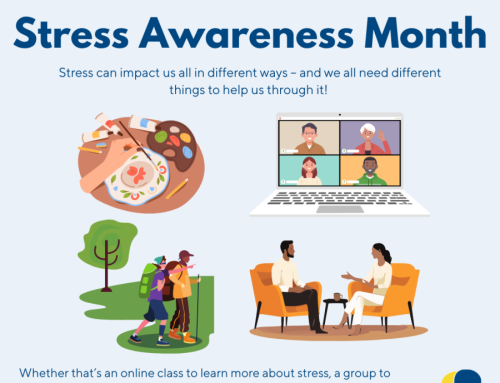This 16 Days of Action to End Gender-Based Violence, Touchstone are raising awareness of domestic violence and abuse. The below figures show both the extent of domestic violence and abuse in the UK and the importance of raising awareness of this issue during this campaign. These figures may be shocking and reference specific forms of abuse and violence- please take care when reading. The article also contains information on where you can get support.
Each year nearly 2 million people in the UK suffer some form of domestic abuse – 1.3 million female victims (8.2% of the population) and 600,000 male victims (4%). The latest data from the UK government’s 2021 Census shows that “the police recorded a total of 1,459,663 domestic abuse-related incidents and crimes in England and Wales in the year ending March 2021.”
While these figures alone are shocking and show a high prevalence of domestic abuse in the UK, it is important to remember that domestic abuse is often a hidden crime, which people do not feel able to record or report and, data held by the police can only provide a partial picture.
Some of this violence can have potentially lethal consequences. 100,000 people in the UK are at high or imminent risk of being murdered or seriously injured as a result, with seven women a month being killed by a current or former partner in England and Wales. The most recent domestic homicide figures make stark reading. The ONS states:
- “There were 362 domestic homicides recorded by the police… between year ending March 2018 and year ending March 2020. This represents 19% of all homicides where the victim was aged 16 years and over during this period.”
- “Of the 362 homicides, 214 (59%) were female victims who were killed by a partner or ex-partner. In contrast 33 (9%) were male victims who were killed by a partner or ex-partner. The remaining 115 (32%) were victims killed by a suspect in a family category.”
Abuse is not always physical. Coercive control is one of the most insidious aspects of domestic abuse and is sadly increasing. The ONS states:
- “There were 33,954 offences of coercive control recorded by the police in England and Wales in the year ending March 2021. This is compared with 24,856 in the year ending March 2020 and 17,616 in the year ending March 2019″
Despite being very common, domestic violence and abuse is regularly hidden and it can take time for victim-survivors to get help for various reasons. All professionals should understand the responsibility to offer non-pressured and non-judgemental support led by the victim-survivor. On average victim-survivors at high risk of serious harm or murder live with domestic abuse for 2-3 years before getting help. Reports suggest that 85% of victim-survivors seek help from professionals on average five times in the year before they got effective help to stop the abuse.
Who is affected by domestic violence and abuse?
The short answer to this question is: anyone can affected by domestic violence and abuse, regardless of gender identity, ethnicity, sexual orientation, class, religion or age.
As some of the above figures demonstrate, women are much more likely than men to be the victims of high risk or severe domestic abuse. Recent reports suggest that 95% of those going to MARAC or accessing an IDVA service are women.
Research by Safe Lives has also suggested that some LGBT+ people experience domestic abuse at a higher rate than non-LGBT+ people, with bisexual women, trans and non-binary people at particular risk.
Children are also regularly affected by domestic abuse, whether via direct harm or through witnessing harm to parents or other family members. 130,000 children live in homes where there is high-risk domestic abuse, with 62% of children living with domestic abuse experiencing direct harm by the perpetrator of abuse.
What to do if you or someone you know is experiencing domestic abuse?
If you’re experiencing domestic abuse and feel frightened of, or controlled by, a partner, an ex-partner or family member, it’s important to remember that it’s not your fault and there is no shame in seeking help. You can get help from any of these organisations depending on where you live in the UK:
- If you believe there is an immediate risk of harm to someone, or it is an emergency, call 999.
For other forms of support
- England’s National Domestic Abuse Helpline:
- 0808 2000 247 (24/7)
- Online live chat (Mon-Fri, 3-10pm)
- Web form
- Northern Ireland Domestic Sexual and Abuse Helpline:
- 0808 802 1414 (24/7)
- Online live chat (24/7)
- help@dsahelpline.org
- Scotland Domestic Abuse and Forced Marriage Helpline:
- 0808 027 1234 (24/7)
- Online live chat
- helpline@sdafmh.org.uk (respond as soon as they can and within 2 days)
- Wales Live Fear Free Helpline:
- 0808 80 10 800
- Online live chat (24/7)
- Text (24/7): 07860077333
- info@livefearfreehelpline.wales
- UK-Wide Men’s Advice Line
- 0808 801 0327
- GALOP – LGBT+ Domestic Abuse Helpline UK Wide
- 0800 999 5428
- Email info@mensadviceline.org.uk (Mon-Fri, 9am-8pm)
- Live Chat – Wednesday 10-11.30am / 2.30-4pm
Women’s Aid also have a directory of domestic abuse support services across the UK.
Seeking help for someone you know can be challenging but #YouAreNotalone. Domestic abuse advisers will offer confidential, non-judgemental information and advice on the options available to you helping you to keep safe and make informed choices.
If you believe there is an immediate risk of harm to someone, or it is an emergency, you should always call 999.





